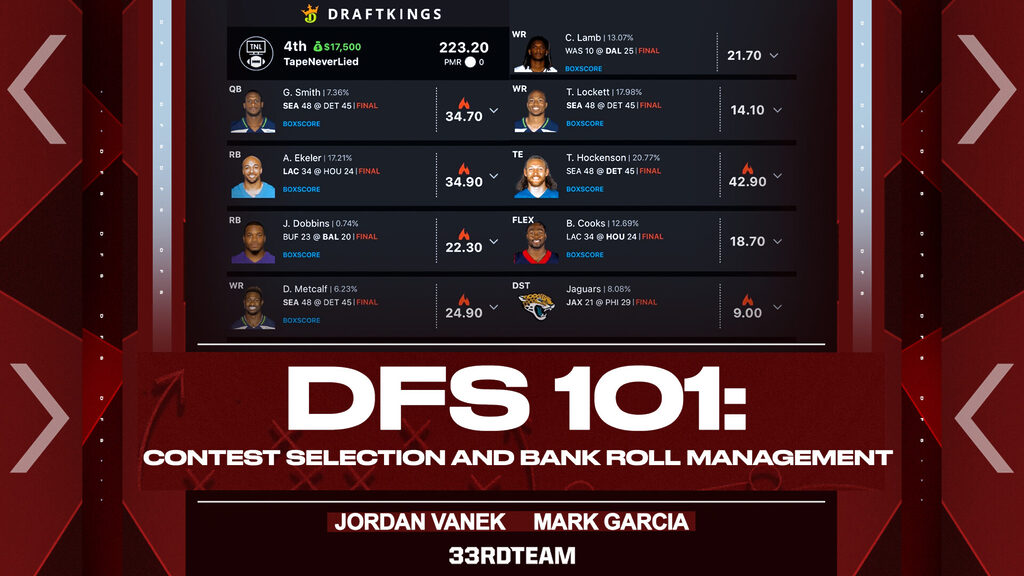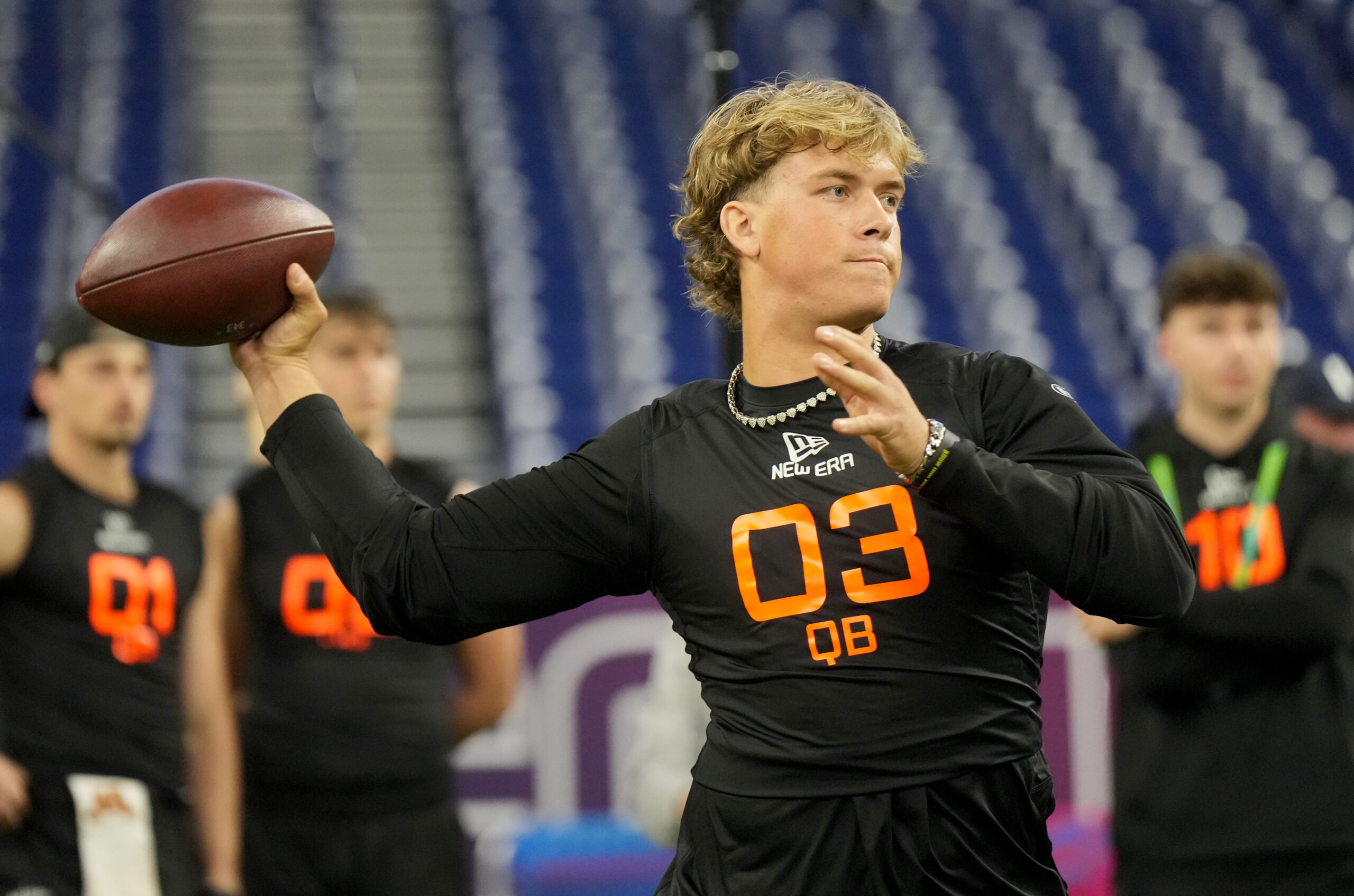Fantasy
7/13/23
4 min read
Understanding DFS Contest Selection, Bankroll Management

When participating in Daily Fantasy Sports (DFS), understanding contest types, selecting the right contests, and managing your bankroll is essential for success.
Different contest types, such as Guaranteed Prize Pools (GPPs), cash games, Head-to-Heads (H2H) and multipliers, require varying strategies due to variance and standard deviations. Contest selection is crucial, as the potential winnings can significantly differ.
Bankroll management — setting loss limits and following established guidelines — is key to sustaining and growing your DFS bankroll.
>> Others in series: Stacking | Rostership Data
Understanding Contest Types
In poker terms, GPPs are your multi-table tournaments, 50/50s are your cash games with a small rake, H2Hs are the heads-up battles, and multipliers are the survivor-style tournaments. Those include satellites, where a set percentage of the field makes a set multiplier of the buy-in.
Strategy elements for each contest type will vary around variance and standard deviations within a set range of outcomes.
Contest Selection
Single Entry and Three-Max medium field GPPs are the best contests. With the increased availability of optimizers and decent projection models, the cash line is much higher and close to the GPP cash line. — Garcia
Contest selection is one of the most important things to consider when getting into DFS.
Every week, there are instances where a lineup that scores 200 points cashes for $100 in the Milly Maker Contest because there are 200,000 lineups and more lineups make it harder to win. That same lineup scoring 200 in a 1,500-entry contest could come in first place, making you $10,000. — Vanek
Bankroll Management
Starting with a $20 bankroll a decade ago, I played cash games to fund entry into GPPs. However, my perspective shifted after a significant win of $15,000 in a large-field MLB GPP in 2017.
Nowadays, focusing on the $100 Single Entry and $150 3-Max GPPs on DraftKings, I can sustain an entire NFL season with a $5,000 bankroll.
For beginners, a strict 10 percent rule for GPP play is recommended. That means not having more than 10 percent of your bankroll in play on a given slate, with variations depending on individual circumstances. Regarding Showdown slates, you should limit the bankroll percentage to no more than five percent.
It's crucial to understand the variance associated with GPP play, which exists in football and DFS. The size of the contests we enter adds further variance. Managing this variance is key to growing (or shrinking) a bankroll. — Garcia
Increasing the sample size through additional slate options like afternoon-only and Showdown slates is a good idea. However, as you increase volume, proper bankroll management becomes essential for sustained success.
To play DFS, accepting the possibility of losing your investment on a specific week is essential. No one has a perfect success rate, and there will be weeks when your lineup doesn't perform as expected.
The way to base your “total loss” is by thinking about the 18-week season. The question becomes, what are you willing to lose each week? Then, you multiply that by 18 to see your total bankroll.
Winning tournaments can increase the weekly limit, but it's advisable to stick to familiar contests like the $100 Single Entry or $150 3-Max GPPs.
Establishing a successful bankroll requires discipline, recognizing the risks involved and ensuring you're comfortable with potential losses. Following a rule like Hilow's 10 percent guideline for GPP play is an excellent starting point. — Vanek
Conclusion
DFS offers exciting opportunities but requires knowledge and strategy to navigate successfully. Understanding contest types, selecting the right contests based on potential returns and managing your bankroll with discipline are vital components.
Whether you prefer GPPs, cash games, H2H battles or multipliers, adapting your approach to each contest type's characteristics is crucial. By following proven guidelines and remaining aware of DFS’ inherent variance, you can position yourself for long-term success.
Follow The 33rd Team Podcast Network on Spotify and Apple Podcasts.





